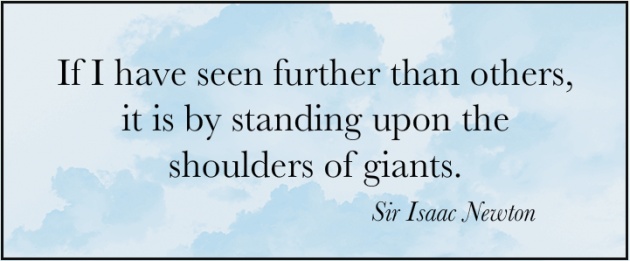
If you want to find a mentor, you want to know how many you have to contact before you will find the right one. In this post you will read about how one of my mentors gave me my first executive coaching client at 21 and you will find a series of questions and actions to take in the real world. Take the time to write down the answers (paper, Evernote, etc) and do the tasks you are given because both will take you a step closer to finding the mentors you are looking for.
When I went to Poland to set up my business, I really struggled. For 6 months, I didn’t get a single meeting. Everyone told me ‘you don’t speak polish, you are too young, we are not interested’. After 6 months, I decided to change my strategy. I wanted to meet the best corporate trainer and executive coach in the country to learn from them. I found what seemed like an endless list of names. After a brief research on each, I contacted all the ones who were even remotely relevant. One of the most influential of my years in Poland is Piotr Tymochowicz. Piotr was said to be the best business coach and PR specialist in the country. Some loved him, others hated him, yet everyone seem to agree he was the best.
Within 6 months of research and contacts, I had a track record of hundreds of emails I never received a reply to, dead end phone calls and meetings with improbable mentors. I felt as if I’d never find any executive coach who’d understand me. I felt that they were all so patronizing, dismissive and that they kept sending me to the back of the line: “you’re too young, too inexperienced and you need to get 30 years of business experience before doing what I do.” I read Piotr Tymochowicz’s company website and I was impressed. My judo teacher says “it doesn’t matter how often you fall, what matter is that you stand back up and that you keep going”. Remembering his teaching, I gathered all my energy and enthusiasm and send Piotr an email.
Within a couple of hours of sending Piotr an email, I was invited for a meeting the following week. Half an hour into conversation, he told me he is impressed by my ideas and wants me to meet the rest of his board. The following week, I met the rest of the board and he took me under his wings as his protégé. I am very grateful that he took 2h a week to teach me one-on-one his “Open Communication” technique. After completing the programme and proving my ability to learn and implement this new communication technique, he gave me what I had asked for: the opportunity to coach a CEO of a company. After teaching him the 30h coaching programme one on one, the university drop out in me was very proud: I was 21 and I successfully coached a CEO who’s children were older than me and who earned more in a day than I had in my entire life. This experience changed my life as a coach because I had finally done what I wanted to do.
Through this experience, I learned that finding the mentor you’re looking for is a numbers game. In retrospect, Piotr seems like a “God-sent”. In reality, I contacted and met with hundreds of people before I met Piotr. Piotr was a “lucky draw” in the sense that I had no idea he would be a better match than others I had met. This situation is a perfect illustration of what Thomas Jefferson said “I am a great believer in luck, and I find the harder I work, the more I have of it.”
How can you work hard at being lucky when it comes to finding the mentor you are looking for?
1. Create an excel sheet and make a long list of names of people who have at least 1 characteristic that makes them a potential mentor (eg. they’ve got the kind of job you want to have). As a rule of thumb it is good to start with a minimum of 10 names. If you can collect over 100 names, it will make the rest of your work easier and more comfortable.
- Look into your personal network (phone, address book, Facebook, LinkedIn, etc)
- Ask everyone you meet if they know someone who has this characteristic (friends, family, colleagues, acquaintances, etc)
- Research the internet for influencers in that field (practitioners, experts, bloggers, journalists, speakers, writers, researchers, business owners, etc)
- Contact your networks to ask for people with the characteristic from their current / alumni networks (schools, universities, former bosses, former mentors, trade associations, student societies, etc)
2. Next to each name, add a column with a number from 1-3 for how close you are to this person (3 = closest, 1 = farthest) and another column with natural connection (3 = you feel the most naturally connected, 1 = you feel the most distant). Sort the columns to see the most naturally connected and the closest people at the top.
3. Contact the first 10 people on your list starting from the top and tell them what you want to talk about (ie. you want to learn how you can get the job they have, you want to hear their experience in that industry, you want to get their advice on the next big thing in the industry, you want to understand better about their work, etc). Ask them for something specific like 10 min / 30 min / 1h to talk over the phone, meet for coffee at / near their office or grab a lunch.
- If they’re the right match, continue the conversation and ask to meet again (more details in the book Seek to Keep)
- If they’re not the right match, ask for people they can introduce you to who also have the characteristic you’re looking for
4. Continue to grow your list
5. Repeat with the next top 10 people on your list
Sharing your progress can help with keeping yourself on track. Share in the comments how long it took you to make the first draft of your list and how many names you have put in there. You can also share your progress as you send the first 10 emails, make your first meetings and when you find a mentor.
After you make the list and write a comment, remember to share this post with friends who can find it useful, too.
The article was co-authored by Lujie Chen is the co-founder of the Young Leaders Circle and Gift for Reading, two social initiatives that develop and empower young people to make positive impact in the world around them.
Original article here: www.entrepreneurhandbook.co.uk/author/noam_kostucki/



